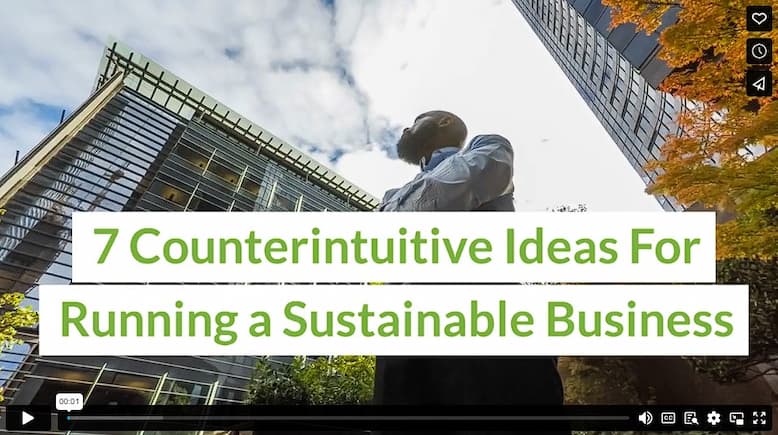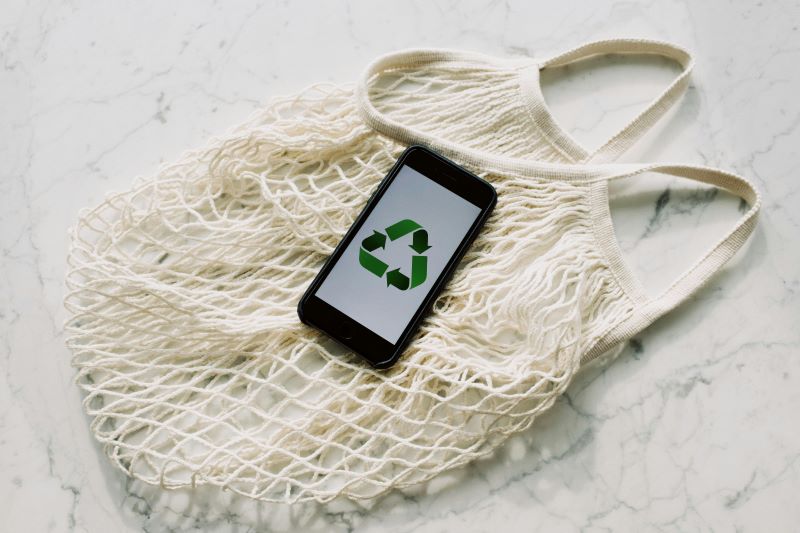Imagine walking into an aromatic cafe. You order a meal to take away and are asked if you brought your own container. You haven’t, but you’re not shamed for this. They have some to use. The checkout attendant is friendly and attentive, unlike so many you’ve dealt with recently. Something is different here, but it’s hard to put your finger on it. You’re halfway done with the delicious vegetarian meal before you realize what sets the cafe apart. It was a truly sustainable business without any in-your-face posters declaring their green practices or price-hiked organic selection.
Sustainability has become a hot topic for businesses worldwide, driven by the urgency to protect the planet and meet evolving consumer expectations. However, much of the recent sustainable business hype is simply to increase consumer interest and profit. True sustainability can be profitable but delivers environmentally friendly goods and services because it’s the right thing to do. From setting the right motives to fostering an accepting culture and alternative recycling, these counterintuitive strategies will guide authentic, sustainable practice.
1. Don’t Do it to Fit in
Sustainability is a buzzword. That’s great because it shows the green movement is gaining traction. However, too many companies pursue sustainability solely for public relations or marketing purposes. This leads to outward appearances that don’t reflect the internal system.
Embrace sustainability because it’s important to you, not because it’s what everyone else is doing. Businesses succeed by doing things differently, after all. If you’re being sustainable to fit in, you’ll probably do it in the greenwashing way that so many others do, and it will only harm your business and the environment.
2. Rely on Recycling Less
While recycling is an important part of the sustainability puzzle, it is more impactful to reduce the need for recycling in the first place. Consider implementing waste reduction strategies such as:
- Offering refillable or reusable product options
- Optimizing packaging materials
- Reducing overall consumption
- Banning single-use plastics
Even if the garbage is recyclable, unneeded packaging makes waste management more of a hassle anyway. In 100 years, we will likely look back on single-use plastics and wonder what society was thinking. Be ahead of the game. By minimizing waste generation, you can significantly reduce your environmental footprint and save money.
3. Invest in a Nice Building
Many people think reducing their carbon footprint means retreating to the stone ages in terms of creature comforts and luxury. While overconsuming is an issue, investing in high-end infrastructure can significantly reduce your energy consumption and carbon emissions. Consider implementing energy-saving technologies, such as LED lighting, efficient HVAC systems, and smart energy management systems. Other sustainable ideas include:
- Integrating natural lighting – Save electrical energy while increasing worker energy
- Incorporating green spaces – Improve well-being and connection to nature
- Installing a shower and bike racks – Encourage bike commuters
4. Recycling Weird Things
Expand your sustainability efforts beyond traditional recycling practices. Look for innovative ways to recycle unconventional items or materials specific to your industry. For instance, if you run an automotive business, consider partnering with a tire shredder business to dispose of and repurpose used tires responsibly. Waste tire disposal might not be the typical avenue of sustainability. But for your business, it might be the most important way to contribute to a circular economy.
5. Create a Culture of Acceptance
Unfortunately, focusing your business on sustainability issues too often creates disagreements and workplace drama. Encouraging a culture of sustainability without judgment for people who are more or less engaged is crucial.
Purposely or unintentionally shaming employees and customers for unsustainable practices will only lead to more pushback. A sense of belonging and pride in your business will inspire employees to get on board with sustainable practices faster than forcing them to conform.
6. Don’t Do Everything at Once
Sustainability is a journey, not an overnight transformation. It is important to set realistic goals and take incremental steps toward becoming a more sustainable business. Trying to tackle every aspect of sustainability simultaneously can be overwhelming and hinder progress.
Start by identifying the areas where your business can have the most significant impact and prioritize those initiatives. For example, a tire production company might want to outsource tire recycling to another company before investing in its own tire recycling machinery.
7. Be Generous
Consider giving back to your community by supporting local sustainability initiatives, partnering with nonprofits, or establishing your own sustainability-focused charitable programs. By fostering innovation and generosity, you can make a significant impact and inspire others to follow suit.
As Seth Godin once quipped, “We’re in this moment in our culture where people are waking up and saying thank you very much, but I don’t need to buy another thing. What I need to do is find something to care about.” Sustainable business isn’t a strategy of selling more stuff. It’s a practice of caring about the right things and inviting others to join in.
Infographic
In the business world, sustainability is a prevalent term, but many adopt it superficially for PR and profit, risking ‘greenwashing.’ True sustainability demands authentic commitment. Reduce waste, invest in eco-friendly infrastructure, innovate recycling, foster a culture of acceptance, and take gradual steps. Prioritize impactful initiatives and community involvement for a meaningful transition.
Video






